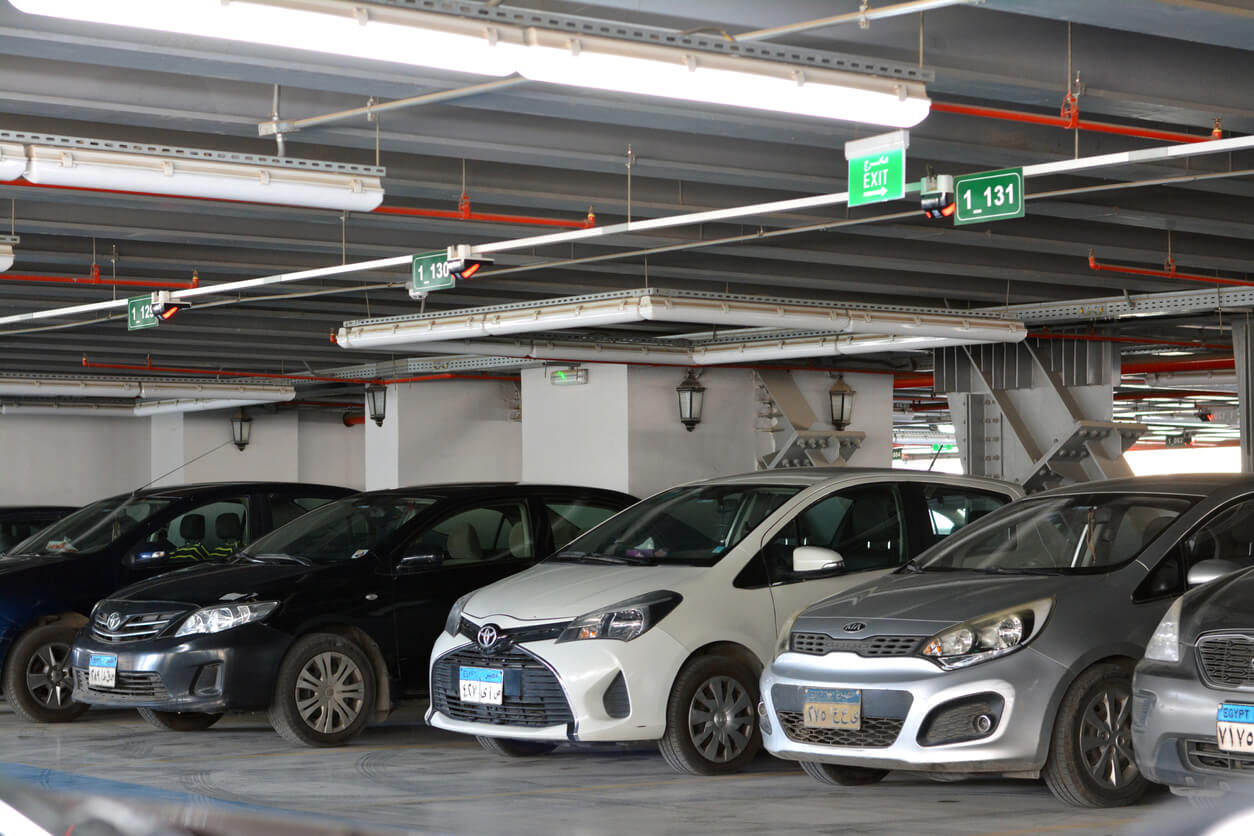It happens all the time. A resident arrives at their condo building and drives down their parking garage ramp after a long day. Excited to be home, their mood quickly changes from harmonious to angry when they see another strange vehicle already in their spot.
Table of contents
- Reasons condos need to tow a vehicle
- Start by checking local or state laws
- Your governing documents may permit towing
- What if documents are vague about towing?
Then there are the guest parking spots that are never vacant. An old clunker has seemed to take up permanent residence in a spot that’s supposed to be shared.
In these and similar instances, what can condominium communities do? Is towing an option? Read on to find out.
Reasons condos need to tow a vehicle
The key reason a board or property manager will take action to remove a vehicle from the property is that it is parked in an unauthorized location. However, some communities may have other parking rules that could result in the removal of the car if they are broken:
- Violations of parking restrictions within the declaration
- Expired plates/tags
- Parking an inoperable car on condo property
If the vehicle is either parked somewhere that it shouldn’t be, or cannot be driven legally, then a condominium could rightfully tow it. However, it must follow a process before the car can be removed.
Start by checking local or state laws
To determine how and when a condo community can have a car towed from its parking lot, it must examine local and/or state laws regarding this issue first.
Your city or country may not allow you to tow a vehicle without assistance from authorities. Or, you may need to post specific signage in order to legally tow.
Moreover, it is always a good idea to consult with the condo’s attorney prior to towing any vehicle from the property.
Examples of towing laws
Here’s an example of towing laws from the city of Toronto:
“Where the property owner or occupant has posted signs stating the conditions on which a motor vehicle may be parked or left on the property or prohibiting the parking or leaving of a motor vehicle on the property, any motor vehicle parked or left on the property contrary to those conditions or prohibitions shall be deemed to have been parked or left without the consent of the property owner or occupant.
A police officer, police cadet, or municipal law enforcement officer employed by the Toronto Police Service shall not cause the removal of a vehicle from private property or municipal property unless:
A) A waiting period of 30 minutes has expired
B) A Toronto Police Service tow card is issued in respect of the vehicle at the time of the removal
and
C) The vehicle bears a number plate issued under the Highway Traffic Act, as amended, a penalty notice is issued and served in accordance with the provisions of Chapter 610, Penalties, Administration of.”
And these are the towing laws for Florida:
In Florida, towing laws are defined by Florida Statute §715.07.
“The owner or lessee of real property, or any person authorized by the owner or lessee, which person may be the designated representative of the condominium association if the real property is a condominium, may cause any vehicle or vessel parked on such property without her or his permission to be removed by a person regularly engaged in the business of towing vehicles or vessels, without liability for the costs of removal, transportation, or storage or damages caused by such removal, transportation, or storage, under any of the following circumstances:
A) The towing or removal of any vehicle or vessel from private property without the consent of the registered owner or other legally authorized person in control of that vehicle or vessel is subject to substantial compliance with the following conditions and restrictions:

1. Any towed or removed vehicle or vessel must be stored at a site within a 10-mile radius of the point of removal in any county of 500,000 population or more, and within a 15-mile radius of the point of removal in any county of fewer than 500,000 population. That site must be open for the purpose of redemption of vehicles on any day that the person or firm towing such vehicle or vessel is open for towing purposes, from 8:00 a.m. to 6:00 p.m., and, when closed, shall have prominently posted a sign indicating a telephone number where the operator of the site can be reached at all times. Upon receipt of a telephoned request to open the site to redeem a vehicle or vessel, the operator shall return to the site within 1 hour or she or he will be in violation of this section.
2. If no towing business providing such service is located within the area of towing limitations set forth in sub-subparagraph 1., the following limitations apply: any towed or removed vehicle or vessel must be stored at a site within a 20-mile radius of the point of removal in any county of 500,000 population or more, and within a 30-mile radius of the point of removal in any county of fewer than 500,000 population.
B) The person or firm towing or removing the vehicle or vessel shall, within 30 minutes after completion of such towing or removal, notify the municipal police department or, in an unincorporated area, the sheriff, of such towing or removal, the storage site, the time the vehicle or vessel was towed or removed, and the make, model, color, and license plate number of the vehicle or description and registration number of the vessel and shall obtain the name of the person at that department to whom such information was reported and note that name on the trip record.
C) A person in the process of towing or removing a vehicle or vessel from the premises or parking lot in which the vehicle or vessel is not lawfully parked must stop when a person seeks the return of the vehicle or vessel. The vehicle or vessel must be returned upon the payment of a reasonable service fee of not more than one-half of the posted rate for the towing or removal service.
D) Except for property appurtenant to and obviously a part of a single-family residence, and except for instances when notice is personally given to the owner or other legally authorized person in control of the vehicle or vessel that the area in which that vehicle or vessel is parked is reserved or otherwise unavailable for unauthorized vehicles or vessels and that the vehicle or vessel is subject to being removed at the owner’s or operator’s expense, any property owner or lessee, or person authorized by the property owner or lessee, before towing or removing any vehicle or vessel from private property without the consent of the owner or other legally authorized person in control of that vehicle or vessel, must post a notice meeting the following requirements:
1. The notice must be prominently placed at each driveway access or curb cut allowing vehicular access to the property within 10 feet from the road, as defined in s. 334.03(22). If there are no curbs or access barriers, the signs must be posted no fewer than one sign for every 25 feet of lot frontage.
2. The notice must clearly indicate, in not fewer than 2-inch high, light-reflective letters on a contrasting background, that unauthorized vehicles will be towed away at the owner’s expense. The words “tow-away zone” must be included on the sign in not fewer than 4-inch high letters.
3. The notice must also provide the name and current telephone number of the person or firm towing or removing the vehicles or vessels.
4. The sign structure containing the required notices must be permanently installed with the words “tow-away zone” not fewer than 3 feet and not more than 6 feet above ground level and must be continuously maintained on the property for not fewer than 24 hours before the towing or removal of any vehicles or vessels.
5. The local government may require permitting and inspection of these signs before any towing or removal of vehicles or vessels being authorized.
6. A business with 20 or fewer parking spaces satisfies the notice requirements of this subparagraph by prominently displaying a sign stating “Reserved Parking for Customers Only Unauthorized Vehicles or Vessels Will be Towed Away At the Owner’s Expense” in not fewer than 4-inch high, light-reflective letters on a contrasting background.
7. A property owner towing or removing vessels from real property must post notice, consistent with the requirements in sub-subparagraphs 1.-6., which apply to vehicles, that unauthorized vehicles or vessels will be towed away at the owner’s expense.”
As you can see, towing rules vary greatly depending on where you live.
Your governing documents may permit towing
If towing is permitted in your city, the next step is to have parking bylaws that include repercussions for breaking the rules. A well-crafted set of rules will outline steps that the condo will take before the vehicle is towed. This usually involves issuing notices and fines. The car owner may need to be afforded a certain amount of time before the condo can take additional actions.
If the vehicle does not belong to a resident or owner of the building, as a best practice, warning notices should still be provided to the car owner.
What if documents are vague about towing?
Not all governing documents contain the explicit authority to tow. Some may simply grant the condominium the authority to enforce reasonable rules and regulations with regard to the use of the common elements. While this is better than nothing, vague laws make it harder for a condo to successfully have a vehicle towed, especially if there isn’t any signage on the property.
It’s best to have clear and detailed bylaws within the condo’s governing documents when it comes to this, and any other issues. That way, residents will have a strong understanding of parking rules, and what could happen if they do not follow the rules.
Conclusion
Condo communities do have the authority to tow a vehicle since condo parking lots are not public property – however, different communities will have different rules. Some communities will be able to tow right away with the assistance of authorities while others may have to provide notice to the vehicle owner first.
Whatever the case, boards and management should do their best to give car owners a fair opportunity to resolve the parking problem before taking such serious correctional action. Send friendly reminders about parking rules using short emails or the condo newsletter. A reminder that the community has the right to tow offending vehicles from the property, and a request asking residents not to put the board in the position where it has to tow someone’s vehicle can really help to minimize parking problems.


